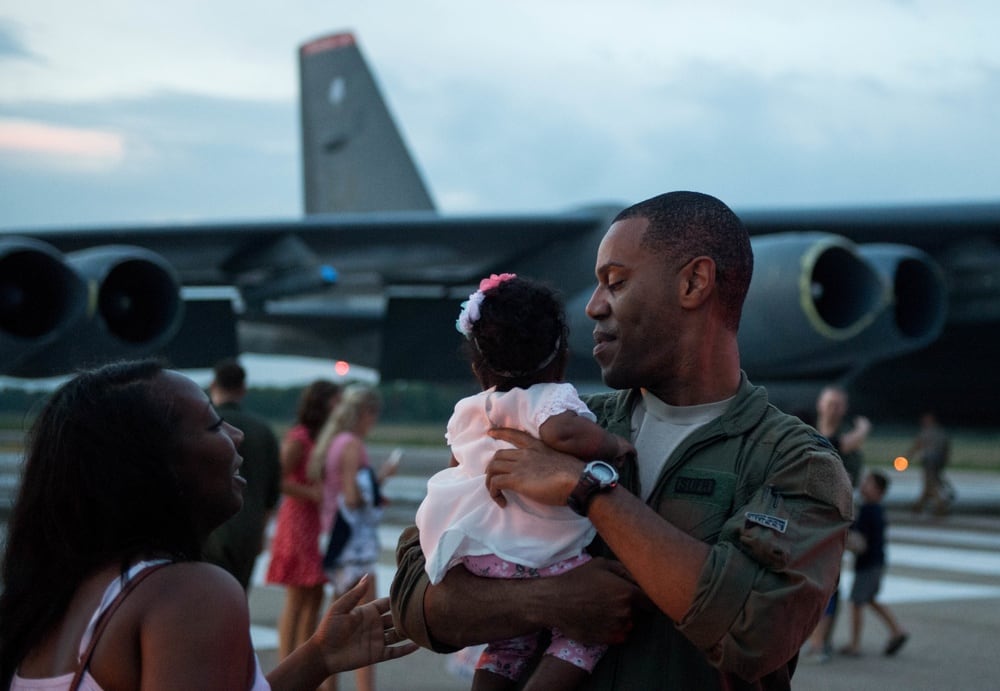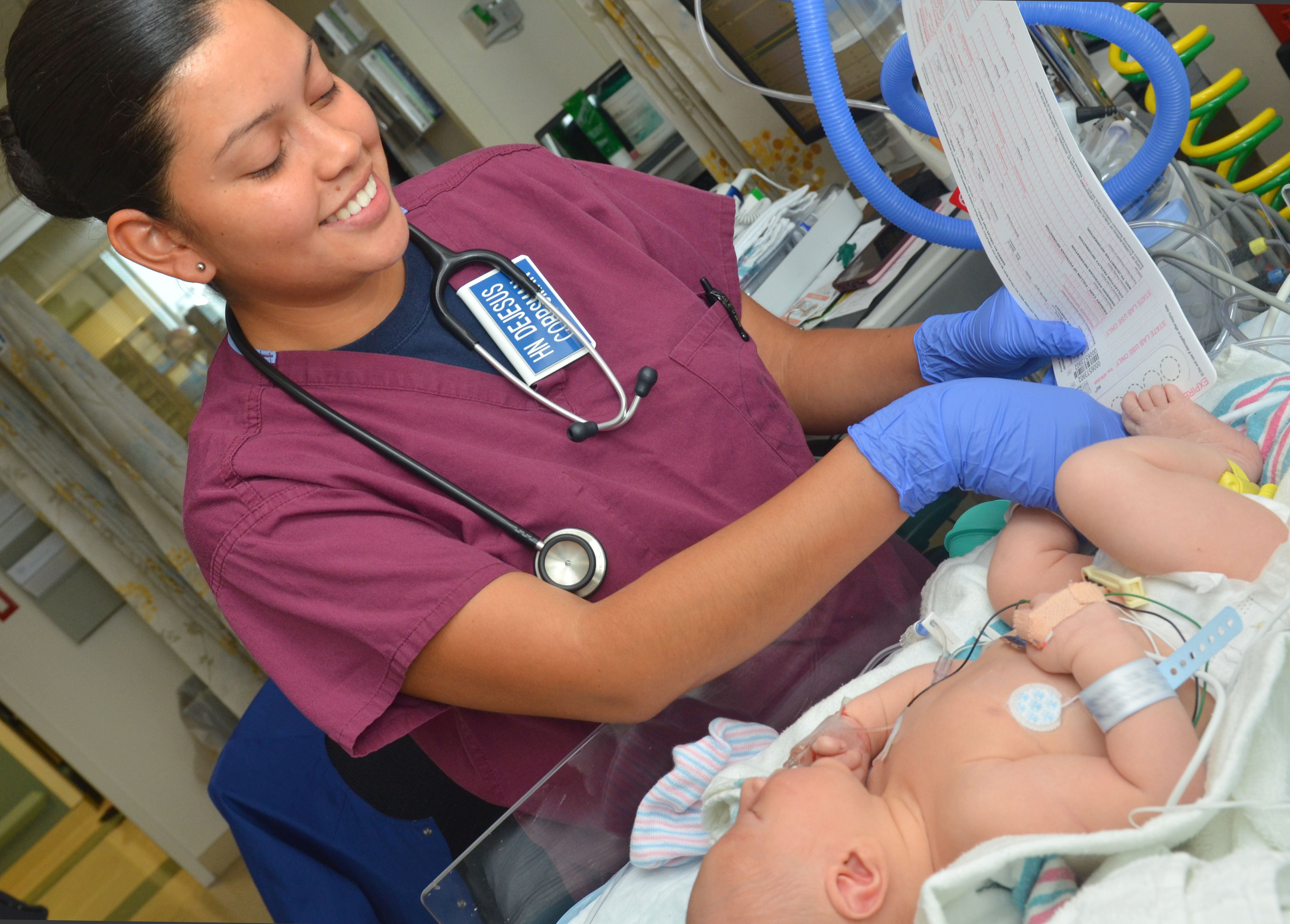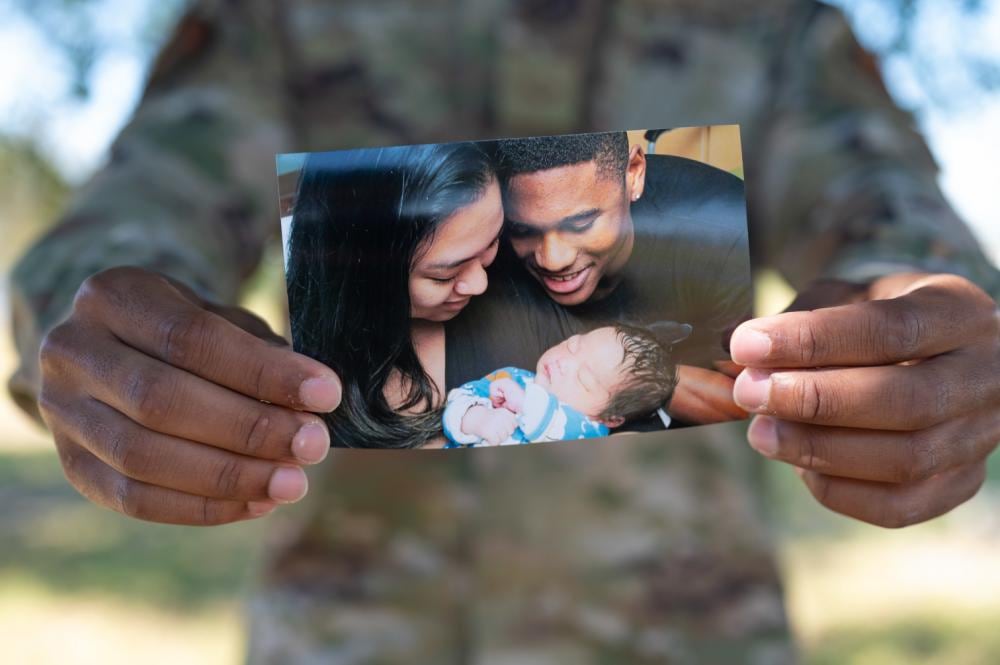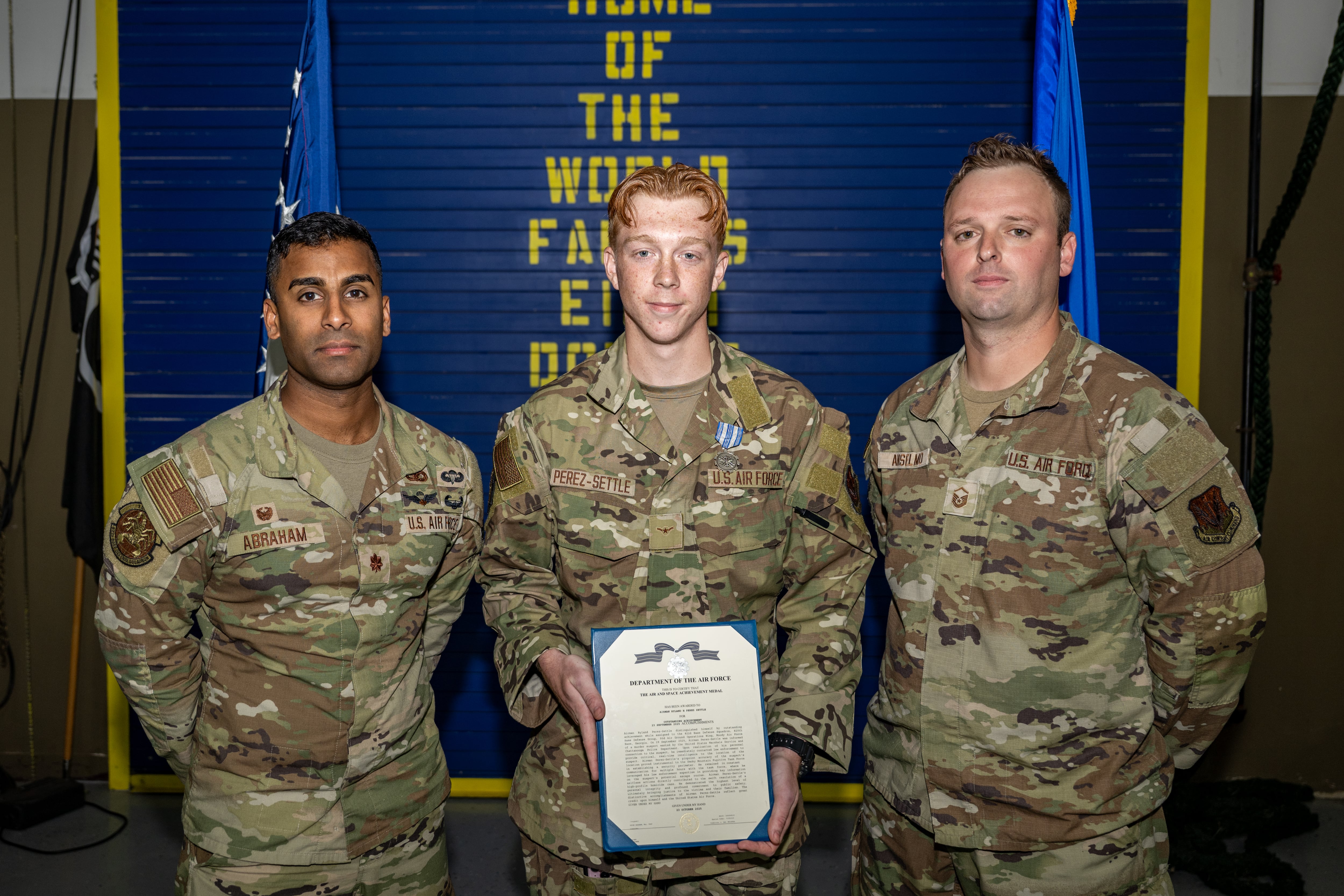Parents-to-be who are awaiting changes to the Department of the Air Force’s parental leave policy could see that relief in the next few weeks.
Last December, Congress directed the Pentagon to revise its disparate military parental leave programs to allow any qualifying service member — mothers and fathers — to receive 12 weeks of leave after a new birth or adoption, or accepting a foster child. Birth mothers are also allowed take convalescent leave in addition to those 12 weeks of parental leave.
A year later, the changes are awaiting approval by Defense Secretary Lloyd Austin’s policy shop, Air Force spokesperson Tech. Sgt. Deana Heitzman said. They’re slated to take effect “on or about” Jan. 1, she said.
RELATED

The update would ditch a previous distinction between “primary” and “secondary” caregivers, which typically assumed that a child’s birth mother would be the one to stay home in those critical first weeks.
Primary parents who serve in the Air Force or Space Force currently receive six weeks of parental leave to care for their new child; secondary parents get three weeks. New birth mothers also get six weeks of convalescent leave on top of the parental leave, for a total of 12 weeks.
Austin’s office hasn’t given the Air Force a preview of its new policy, Heitzman said. It’s still unclear whether the changes would be retroactive for those whose families have grown since the 2022 National Defense Authorization Act was enacted last year.
“The policy is still under development, so they have not decided if it will be retroactive,” Pentagon spokesperson Maj. Charlie Dietz said.
Officials hope the new flexibility will allow for more equitable family and career planning — particularly for female troops, who often feel pressured to choose between starting a family and remaining in uniform — based on what’s best for a service member and their loved ones.
RELATED

The slow rollout has frustrated pregnant troops, their spouses or partners, and their colleagues, who have sought clarity about stay-at-home options once a baby is born.
Some airmen have struggled to get their commanders to approve their requests to serve as a primary caregiver, including one viral incident that led Air Force headquarters to weigh in.
“Service members are responsible for determining who the primary caregiver/secondary caregiver is and must then submit appropriate leave [requests] to their commander,” then-Air Force personnel chief Lt. Gen. Brian Kelly wrote in a letter to the service in February.
“Commanders then balance mission requirements with leave policy and guidelines and exercise appropriate discretion when approving or disapproving leave for a qualifying birth event or adoption,” he added.
Rachel Cohen is the editor of Air Force Times. She joined the publication as its senior reporter in March 2021. Her work has appeared in the Washington Post, the Frederick News-Post (Md.), Air and Space Forces Magazine, Inside Defense, Inside Health Policy and elsewhere.





